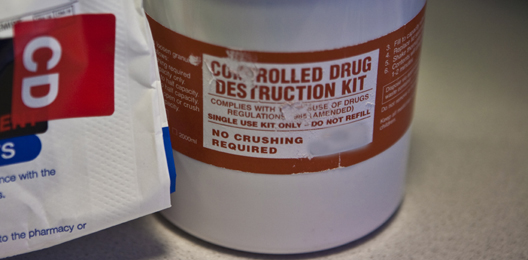Relocations which do not result in significant change
Published on: 19th September 2013 | Updated on: 3rd December 2024
QUICK LINKS |
| Pharmacy Regulations 2013 |
| DH guidance |
The ‘Relocations which do not result in significant change’ application was bought in under The National Health Service (Pharmaceutical and Local Pharmaceutical Services) Regulations 2013, to replace the Minor Relocation application of the 2005 regulations. The new regulations judge applications based on whether the relocation would affect the patient groups which use the pharmacy, and whether the relocation would result in a significant change to the arrangement for pharmaceutical services, rather than whether the relocation would be above or below 500m, or in the same neighbourhood.
Regulation 24 contains the requirements to be satisfied for an application to be successful. The applications forms (within the same HWB or to a neighbouring HWB) – see under Chapter 17 – are available from PCSE (on behalf of NHS England), and should be submitted with the relevant fee, as set out in the Secretary of State Directions of Fees for applications.
The local NHS England Team must endeavour to determine the application as soon as is practicable, however this must within four months from the date on which the complete application is received. There is a further thirty day appeal period before the pharmacy can relocate, and the pharmacy must relocate within six months of being granted (subject to a possible 3 month extension).
Relocations which do not result in significant change are a notifiable application, meaning that all applications are circulated to the LPC and contractors likely to be affected if the application were to be granted, and they are allowed 45 days in which to make representations. This differs for some relocations processed under the 2005 Regulations in that those which were relocating less than 500m would be determined without consultation, and within 30 days. All relocations now are subject to the statutory consultation period.
Relocations that do not cause significant change are not judged against a Pharmaceutical Needs Assessment (PNA).
Click on a heading below for more information.
1. The new premises must not be significantly less accessible for the patient groups that use the pharmacy at the existing premises
Scenario one A rural pharmacy is relocating 600m along a high street, to be closer to the local GP surgery. The main patient groups drive to the pharmacy, and the new premises are easily accessible by foot. This requirement is likely to be satisfied as the patient groups using the pharmacy would find it no more difficult to access the pharmacy at the new site.
Scenario two A pharmacy is relocating 100m to the other side of a busy ‘A’ road but most patients live on the same side of the road as the pharmacy is currently located. The patient groups which access the pharmacy are mainly elderly and with limited mobility. The only way of crossing the road is a bridge which is a 400m walk along the road, and which has steps and a steep ramp. This requirement is unlikely to be satisfied as the patient groups who currently access the pharmacy are likely to experience significant difficulty in walking the extra distance (800m detour), as well as crossing a bridge which could prove difficult to those with a disability.
2. The arrangements for the provision of pharmaceutical services would not be significantly changed This would include consideration of whether the general distribution of patients across the pharmacies (and dispensing doctors) would be largely the same as before the application. If a large cohort of patients would switch the way in which they access pharmaceutical services, the application may not meet this condition.
3. The application would not cause significant detriment to the proper planning of pharmaceutical services A pharmacy is currently situated in the centre of a deprived area, and wants to move to the edge of this in order to be closer to a surgery serving a planned large housing development. The Health and Wellbeing Board has identified the current pharmacy location in its PNA as important to the delivery of services to the deprived population. In this case, as well as refusing the application on accessibility (see 1 above) the local NHS England Team may refuse on the grounds that it affects the planning of distribution of pharmacies in the areas where they are needed.
4. The services which the pharmacy undertakes to provide at the new premises will be the same as those provided at the old premises (whether or not, in the case of locally commissioned services, the Area Team chooses to commission them) A pharmacy currently provides a number of advanced and commissioned Enhanced services, including an emergency hormonal contraception service. It is currently located close to a university but the new location is in the middle of an area with a mature population. Although the pharmacy is unlikely to have such a demand for the Enhanced service, it must undertake to provide the service in its new location, subject to the local NHS England Team continuing to commission it. These provisions are to help ensure that a new contract at a relocated position does not lose the services that local NHS England Teams have previously commissioned – subject of course to the discretion of the local NHS England Team to continue to commission.
5. There will be no interruption in the provision of pharmaceutical services, except for where good cause allows A pharmacy has stated on its application that it will be closing on the Saturday before relocating on the following Monday, for which it would normally be open for five hours, in order to transfer stock and equipment. The pharmacy has undertaken to ensure that all its regular patients will be provided with their medication should they normally pick up on a Saturday, and has ensured that the old premises have a sign directing patients to alternative pharmacies (and there are conveniently located pharmacies). This requirement is likely to be satisfied as the applicant has good cause to close the pharmacy on this day. The other arrangements put in place to ensure continuity of care may be unnecessary for the application, however they ensure that the effect on patients is minimised. In this case, early engagement with the local NHS England Team is essential, as consent would be needed for the temporary interruption in services.
An application must be refused if any of the following apply:
- The pharmacy was listed under the Approved Retail Area exemption of the 2005 regulations, and the pharmacy wishes to relocate outside of this area.
- The pharmacy was listed under the One-Stop Primary Care Centre exemption of the 2005 regulations, and the pharmacy wishes to relocate outside of this centre (unless the pharmacy is moving with the other providers of primary medical services and the conditions of the original exemption continue to be met).
- The pharmacy has already relocated within the past 12 months, unless good cause allows (as determined by the local NHS England Team).
For more information on this topic please email regulations.team@cpe.org.uk













